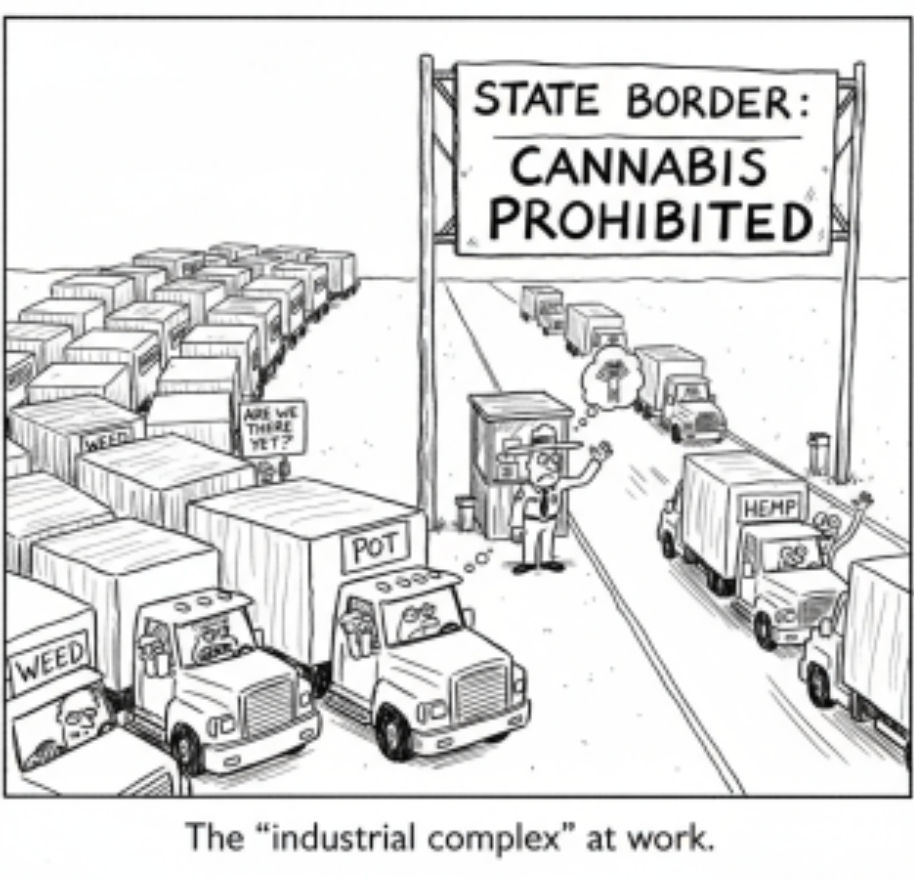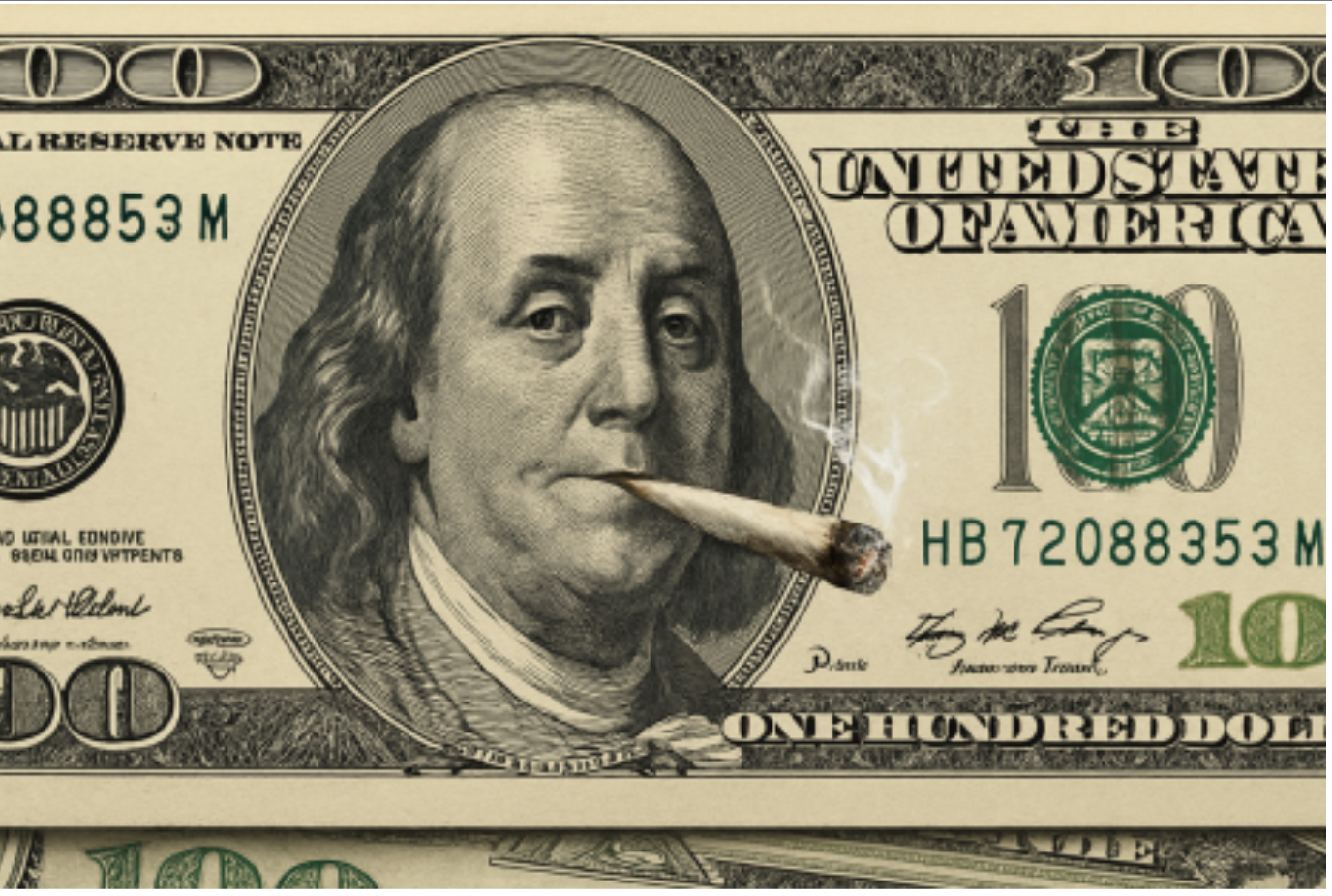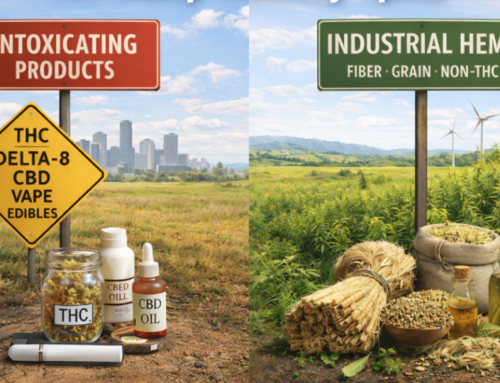OPINION: Careful What You Wish For, You Might End Up With A 12-Inch Pianist
LOS ANGELES- The regulated cannabis industry should be collectively objecting to the language in the Big Beautiful Bill that effectively makes intoxicating hemp products illegal in 12 months.
They should be screaming from the roof like Tevye!
For those in the regulated cannabis industry celebrating Congress’ budget language that will effectively stall the intoxicating hemp industry nationwide, I’m confused. Truly.
You’re cheering for your own chains instead of advocating for one set of STATE regulations while simultaneously effectively ending patient access to full spectrum CBD.
Those products help so many people. So many children. Charlotte Figi was the face for so much hope. A new treatment.

Link: https://hemptoday.net/shutdown-bill-aims-at-intoxicating-hemp while-cbd-braces-for-unintended-fallout/
Plus, all of the regulated operators who are using lesser known or minor cannabinoids in their products, which very often sourced from “hemp” will now either go away or become significantly more expensive. CBN…CBG…bye bye.
A Farm Bill renewal with no change to the definition of “hemp” would have been a clear path to federally legal cannabis products coupled with state rights to protect (your) regulated businesses. Even if those rules, regulations and taxes make no sense themselves.
This is the approach California took, and one I strongly support. State’s rights. Force all intoxicating “hemp” products to comply with the same rules, regulations, and taxes as regulated cannabis.
The California Cannabis Operators Association did a masterful job in lobbying for these changes and getting them enacted.
Link: https://mjbizdaily.com/california-regulates-hemp-and-marijuana under-one-framework/
That’s the right approach.
I’m personally hopeful that CA will revisit these restrictions and create a carve out for low dose beverages to be sold outside of the cannabis licensing system, subject to consumer safety rules including age-gated sales, formulation restrictions, dosage caps and packaging rules. Intoxicating THC drinks are an amazing
entry point for new legal THC consumers and do not compete with the dispensary model. I believe they’re the best mass-market entry point for legal THC consumption.
Texas and Tennessee are other great examples: highly restrictive medical cannabis laws and total prohibition, but regulated broad based intoxicating hemp legality.
Heck, Ted Cruz even supported the last minute amendment proposed by Rand Paul to remove this prohibitionist language!

Link: https://www.marijuanamoment.net/ted-cruz-explains-his-vote-to keep-hemp-thc-products-federally-legal-in-historic-first-senate roll-call-on-cannabis/
Alcohol sales are dropping and despite some public pronouncements that this is a cyclical change and sales will rebound, much anecdotal evidence suggests this is in fact systematic and alcohol is now confronting that apparent reality.
This is a positive shift for consumer health. We should embrace it and support it with SAFE THC infused alternatives. Yes, alcohol manufacturers and distributors will want a piece of the pie.
But that’s ok. They know how to make, distribute, market and merchandise drinks. They have trucks and labor on the road servicing these accounts. They have logistics that work.
The three tier system may be an antiquated system but it works in seamlessly getting these products to consumers in a safe manner that has driven the growth of a multi-billion dollar industry.
Link: https://www.nabca.org/three-tier-system-modern-view-0
A Farm Bill renewal with the current hemp definition would effectively mean the US had 10 years of legal cannabis before the next five-year renewal. Seemingly without violating any of our treaties.
-
280E would disappear. Interstate commerce would be permitted, subject to individual state regulations. Regulated state cannabis operators could (and should) take the position that they are selling “hemp” on their Federal tax returns, if in fact they are starting with biomass that fits the Federal definition.
As federally legal products, stock exchanges could list companies significantly broadening investment especially with index funds needing to invest. Funds that prohibit investment in illegal activities could pour money into the industry. Credit card companies could safely offer their services to the industry. The risk of arrest for committing a Federal felony…gone.
But now everybody stays stuck with the current system of being federally illegal.
Congrats.

And the “loophole” narrative? It’s just that. A convenient narrative being used by regulated cannabis to scare regulators.
Just last week, Steve Bevan, an architect of the 2018 Farm Bill, publicly stated that this language was intentional and the consequences were understood.
https://www.marijuanamoment.net/legalizing-intoxicating-hemp products-wasnt-a-loophole-but-was-intentional-expert-who helped-draft-farm-bill-says/
Per Bevan, the FDA was supposed to establish rules and regulations but thus far, they have not.
Link: https://mgmagazine.com/business/legal-politics/fda-inaction fuels-illicit-hemp-market-harms-farmers-industry-tells-congress/
Yes, not all biomass truly complies, but so much does. Cannabis Sativa L plants are ripe with THCA but tend to have minimal amounts of THC, especially when tested pre-harvest.
That was a distinction that has caused this entire mess. Somehow, the European Union managed to draft a definition of hemp which included THCA…the US did not. Again per Bevan, this was INTENTIONAL.
If Trump reschedules cannabis from Schedule I to III, every cannabis operator will likely continue violating federal law. Yes, you’re literally cheering your own risk of prison and asset forfeiture (however remote that might feel right now).
I’ve written about this extensively in the past. Who is going to comply with the rules and regulations of Schedule III? It’s too expensive for cannabis operators and it would put ALL of the dispensaries out of business if enforced because to comply with law, cannabis would need to be sold in pharmacies with a valid prescription and the products would have to comply with Federal laws.
With a shift to Schedule III, it would be the equivalent of cannabis operators making their own ketamine or Valium (schedule IV) and selling them illegally outside of Federal oversight.
It’s hard to build an industry on that foundation. That’s not a loophole, that’s just plain illegal under Federal law. As illegal operators openly violating the CSA, interstate commerce, public market access, banking and traditional marketing won’t exist.
That seems lost on Schedule III proponents who are solely focused on removing Section 280E, even if they throw in the occasional nod to the opening of medical research and the positive social impact of rescheduling.
Yes, the draconian taxes of Section 280E will go away with a move to Schedule III. Just like they would if we all agreed that it is in fact “hemp” as defined by the Farm Bill.
The coming restrictions will put hundreds of thousands of jobs and a multi-billion dollar industry at risk of being wiped out. These restrictions go against consumer sentiment. These rules are salmon swimming upstream against the shift to a more health conscious society.
Yes, the “bad” players in hemp helped bring this all on. They raced to take advantage of the lack of state oversight. I truly believe that this is what is scaring politicians (and it should). It’s not the low dose drinks.
The narrative around “gas station weed” sold to minors is real. Products with dubious additives and/or pesticides used in production and dangerous for human consumption exist.
Super high-dose products dominate and are being “demanded” by smoke shop retailers. Cannabis biomass is likely diverted into “hemp” products on a large scale. Intoxicating hemp mixed with psilocybin analogs or kratom are available directly to consumers. GROSS.
The hemp industry is reaping what they have sowed by not distancing themselves from these players. Stereotypical celebrity “stoners” and convicted rapists maybe aren’t the best advocates for legalization.
But finding consensus has also been impossible and has helped cause this mess. One collective voice with a singular lobby would be more effective than the disparate approach that has dominated to date.
When oil companies lobby states they come in with a unified voice. Oil companies, dock workers, truck drivers, gas station owners. They might not get what they want but they speak with a singular message.
Hemp/Cannabis?
Not even close.
Low-dose beverage versus high-dose beverage. D8 v D9. THCA flower versus low-dose beverages and gummies. High does gummies versus low-dose beverages. Regulated cannabis versus them all. Alcohol protecting their flank while preparing for a counter offensive.
If (when) this spending package passes, the “industry” collectively has 12 months to lobby for fair regulations for intoxicating THC levels in hemp products.
This must include rules on product safety, age gating, and packaging restrictions. It probably needs a Federal cultivate excise tax as well. Sorry, it’s a reality. It works for alcohol and tobacco. And like Bumpy Johnson says, everyone needs a taste.
I don’t think that it’s a coincidence that major players in big alcohol and beer advocated for restrictions until regulations were put in place…and then miraculously, the industry is told that they have 12 months to convince legislators what those regulations should be.
The fight is far from over. But for anyone needing capital for their hemp business today, good luck with that.
Many small operators will be forced out. New entrants won’t emerge. Heck, this might be a good opportunity to buy in at distressed prices…if you have the stomach for that kind of risk.
So…what do do?
Baton down the hatches while simultaneously charting a new path…if you can find one.



















 Image: Kraig Fox
Image: Kraig Fox

















